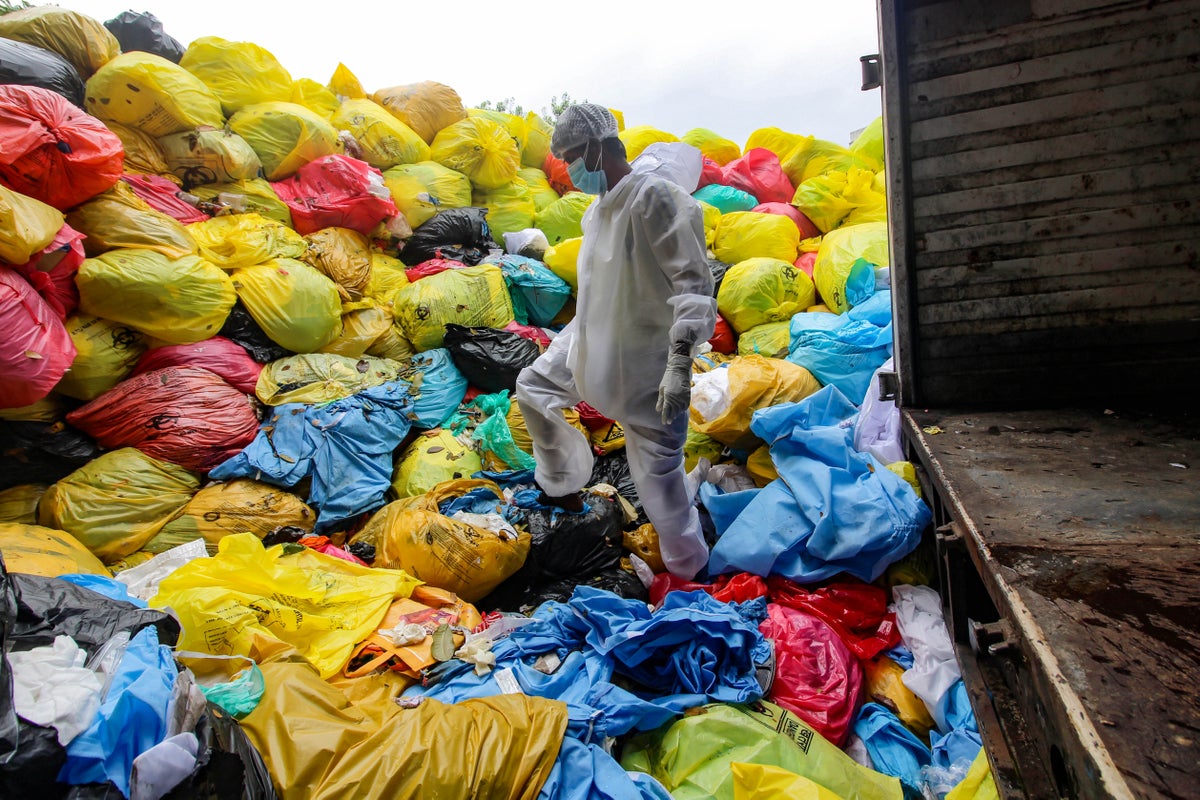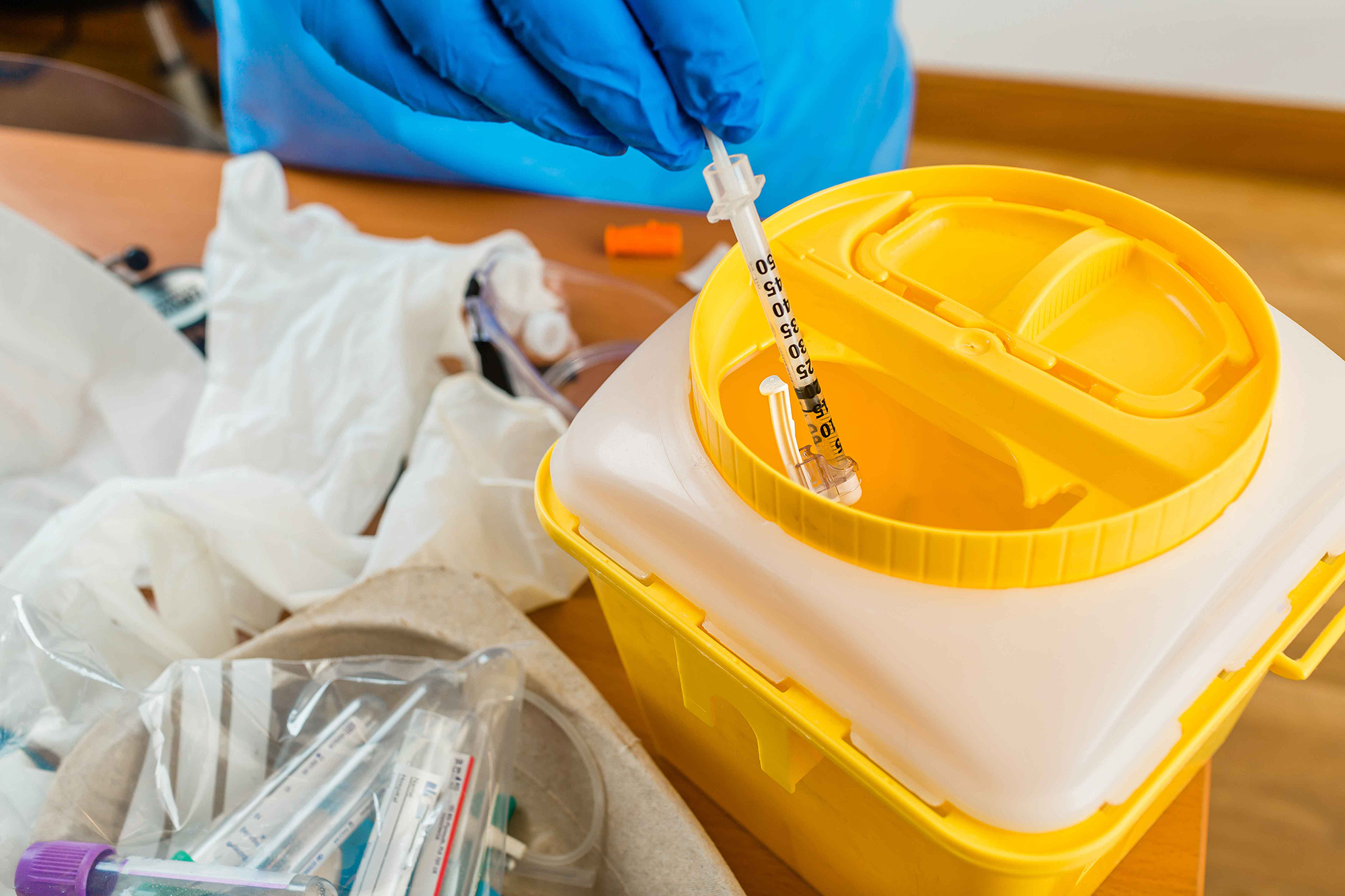Ensuring Safe Handling and Disposal of Medical Waste
Making sure secure handling and disposal of medical waste is of critical importance in medical care settings. Improper management of clinical waste can position substantial risks to the atmosphere, public health, and medical care employees. This requires adherence to rigorous guidelines and methods for its safe handling and disposal. In this intro, we will explore the relevance of appropriate medical waste management, the risks connected with inappropriate handling and disposal, in addition to the standards and techniques that can be implemented to guarantee its safe disposal. In addition, we will certainly discuss the significance of training and education and learning for medical care professionals in order to maintain a tidy and secure healthcare atmosphere. By following these methods, we can successfully alleviate the prospective threats connected with clinical waste.
Importance of Correct Medical Waste Management
Proper clinical waste management is of utmost value in ensuring the safety and security and well-being of medical care specialists, people, and the public. Medical waste refers to any kind of waste produced by healthcare centers throughout the medical diagnosis, therapy, or immunization of people or pets. This waste can position significant health dangers otherwise taken care of and disposed of effectively.
Among the primary reasons that proper medical waste monitoring is important is to stop the spread of transmittable diseases. Medical waste, such as used needles, contaminated dressings, and biological materials, can bring hazardous microorganisms. If not handled and dealt with properly, these microorganisms can be transmitted to medical care employees, people, waste handlers, and even the basic public, resulting in the potential outbreak of diseases.
Furthermore, correct clinical waste administration helps shield the environment - medical waste disposal. Medical waste contains harmful products, including chemicals, drugs, and radioactive compounds. When not handled appropriately, these substances can infect soil, water bodies, and the air, presenting a substantial hazard to ecosystems and public wellness
In addition, effective clinical waste administration ensures conformity with neighborhood laws and international criteria. Federal governments and governing bodies have established standards and methods to make sure the risk-free handling, storage, transport, and disposal of clinical waste. Complying with these guidelines is necessary to stay clear of legal consequences and keep the online reputation and trustworthiness of medical care centers.
Risks of Improper Handling and Disposal

Individuals can additionally be subjected to these transmittable conditions if medical waste is not effectively gotten rid of. If polluted needles or other sharps are not disposed of in assigned puncture-proof containers, they might mistakenly prick individuals, leading to potential infections. Furthermore, if clinical waste is not set apart appropriately, there is a danger of cross-contamination between various types of waste, more enhancing the possibilities of condition transmission.
Improper disposal of clinical waste can additionally have harmful results on the atmosphere and the general public. If medical waste is not dealt with and taken care of properly, it can infect water sources, dirt, and air, leading to the spread of illness and contaminants. This can have lasting consequences on ecological communities and public wellness.
Guidelines for Safe Handling of Medical Waste
Carrying out reliable procedures for the safe handling of medical waste is important in making certain the security of healthcare experts, people, and the general public. These standards are vital in lessening the threats connected with the handling and disposal of medical waste, such as infections, injuries, and ecological air pollution.
Firstly, medical care centers have to develop a detailed waste monitoring strategy that sticks to local, nationwide, and global laws. This strategy must consist of clear guidelines on waste segregation, product packaging, storage, labeling, and transport. It is vital to separate various kinds of waste, such as sharps, contagious products, pharmaceuticals, and non-hazardous waste, to protect against cross-contamination and promote secure disposal.
Furthermore, health care employees have to receive detailed training on appropriate waste handling methods. They must be enlightened on the potential risks of medical waste, the ideal usage of personal protective equipment (PPE), and the appropriate procedures for managing, delivering, and disposing of different kinds of waste.
Furthermore, healthcare facilities must routinely monitor and investigate their waste administration methods to make certain conformity with standards. This consists of performing normal inspections, assessing waste handling treatments, and offering responses and training to team members.
Effective Approaches for Waste Disposal
To guarantee the secure handling and disposal of clinical waste, it is vital to utilize reliable techniques for waste disposal. Medical waste can present substantial dangers to public wellness and the setting if not handled and disposed of correctly. Consequently, medical care centers and waste monitoring organizations have to carry out ideal methods to alleviate these risks.
It involves separating various kinds of clinical waste based on their features. Healthcare centers ought to supply clear guidelines and training to personnel participants on just how to set apart waste appropriately.

In addition, medical care centers must work together with accredited waste administration companies to guarantee appropriate disposal of medical waste. These business have the experience and devices called for to safely manage and get rid of of clinical waste in conformity with guidelines and best techniques.
Training and Education for Medical Care Professionals
Medical care experts play a critical duty in ensuring the risk-free handling and disposal of clinical waste via comprehensive training and education and learning. It is crucial for doctor to have a deep understanding of the prospective threats connected with clinical waste and the appropriate procedures for its administration. By obtaining appropriate training, healthcare experts can reduce the possible transmission of infectious diseases, prevent ecological contamination, and shield both themselves and the public.

Moreover, training programs must stress the usage of personal protective devices (PPE) and appropriate hand hygiene methods when dealing with medical waste. medical waste removal. Healthcare specialists ought to recognize exactly how to appropriately get rid of and make use of of PPE to protect themselves from possible direct exposure to harmful materials. They need to likewise be educated on the significance of normal handwashing and the proper use of hand sanitizers to reduce the spread of infectious illness
Continuing education and learning and routine updates on medical waste monitoring practices are crucial for medical care specialists. As guidelines and laws evolve, it is necessary to keep doctor educated regarding any kind of changes in methods and finest techniques. This will certainly make certain that they remain updated and keep a high standard of safety and security in managing and getting rid of of medical waste.
Verdict
In conclusion, appropriate handling and disposal of medical waste is crucial to guarantee the security of healthcare experts, people, and the setting. By sticking to these practices, we can minimize the potential dangers associated with medical waste.
Medical waste refers to any waste produced by medical care facilities throughout the medical diagnosis, treatment, or booster shot of pets or people. If clinical waste is not segregated appropriately, there is a risk of cross-contamination in between different types of waste, further raising the opportunities of disease transmission.
It is vital to separate various kinds of waste, such as sharps, transmittable products, pharmaceuticals, and non-hazardous waste, to stop cross-contamination and advertise safe disposal. WasteX Medical Waste Disposal.
To ensure the risk-free handling and disposal of clinical waste, it is essential to use efficient strategies for waste disposal. In addition, medical care centers ought to establish a normal waste collection and transport timetable to prevent waste buildup and lessen the threat of mishaps or contamination.